YOU SHOULD SUBSCRIBE TO CLIMATE CHANGE WEEKLY.
IN THIS ISSUE:
- Answering the Climate Inquisition
- Podcast of the Week: COVID Lockdowns, A Dry Run for Climate Lockdowns!
- Scots Discover Big Wind Plastic Problem
- Antarctica Is Not Playing by the Climate Alarm Rule Book
- Video of the Week: Climate Change Roundtable TODAY at noon CT
- BONUS Video of the Week: Climate Incorporated – Billions and Billions
- Climate Comedy
- Recommended Sites
Answering the Climate Inquisition

Editor’s Note: Heartland Senior Fellow Anthony Watts contributed to this essay.
Climate realists or skeptics like me are constantly beset by a variety of logical fallacies and malicious labels cast about by researchers, politicians, and members of the mainstream media who long ago abandoned loyalty to the scientific method in discussions of climate change. I will hereafter refer to such people as the Climate Inquisition (CI).
Instead of thinking critically, the CI repeats already disproven critiques of our position on climate change, questions our motives (rather than addressing our arguments), and calls us names, acting more like ignorant schoolchildren than educated adults with a modicum of civility. Having closed their minds to evidence and even the mere possibility that humans might not be causing a climate catastrophe, the CI not only refuses to debate or engage climate realists, they try to deny us the ability to speak on the topic.
Among the most-offensive labels the CI calls climate realists is the term “climate denier.”
Examples of the CI’s malfeasance and name-calling arrived in the form of articles recently published by Agence France-Presse (AFP) and Grist, both of which were widely republished.
In the AFP story, “Politics, cash, fame: what motivates climate change deniers,” Roland Lloyd Parry jumped proudly onto the ad hominem bandwagon, claiming climate skeptics are motivated purely by greed and fame.
Parry and the people he interviewed falsely asserted climate change realists are in the pocket of Big Oil and other corporations in quest of fame and fortune. These claims lack any basis in truth and in fact have been refuted repeatedly, which is why evidence of such a connection is rarely, if ever, provided.
Climate realists, such as The Heartland Institute and the other organization dedicated to the promotion of sound policy founded in solid science, receive a negligible amount of funding compared to the great mountain of money invested in doomsaying climate research and climate-related political causes. Most accusers are unable to look at themselves in a mirror and see that if anyone is being bought and paid for in the climate debate, it is they.
The major CI people Parry quoted in his article—John Cook and Stephan Lewandosky—have a long history of pulling slimy, unscrupulous shenanigans to smear climate realists.
Cook, a former cartoonist and now a postdoctoral research fellow with the Climate Change Communication Research Hub at Monash University, tried to sneak into a 2019 Washington, D.C. climate conference hosted by The Heartland Institute. Cook falsely claimed to be representing The Weather Channel. His ruse failed. When he was ejected, his film crew recorded the faux outrage he expressed at being rightly denied entrance to a venue he was not cleared or qualified to attend as a properly registered journalist.
The behavior of Lewandowsky, a professor of psychology at University of Bristol, in the enforcement of climate orthodoxy has been arguably been even more nefarious than Cook’s. Lewandowsky has abused his credentials as a professional psychologist by remotely “diagnosing” the motives of climate skeptics, asserting realists suffer from a variety of mental disorders without ever actually interviewing them or disclosing his own biases. That is a clear violation of the canons of the ethics of psychological practice.
Lewandowsky’s misbehavior was so egregious that science journals twice retracted papers he wrote on the psychology of climate realists. In one paper, Lewandowsky compared climate sceptics’ ideas to the false beliefs held by moon landing deniers. Other scientists responded with scathing reviews of Lewandowsky and his methods.
After Lewandowsky publicly suggested “threats” were the reason one journal withdrew his paper, rather than shoddy science, the journal took Lewandowsky to task for spreading misinformation.
Parry violated journalistic ethics by failing to interview any climate skeptics to get their thoughts on claims that money and fame drive their efforts. Parry’s story is nothing more than a litany of logical fallacies piled one on top of the other. Facts need not apply.
The Grist story, “Climate denial campaign goes retro with new textbook,” is only slightly less slipshod. It was written in response to The Heartland Institute’s mailing of 8,000 copies of our Climate at a Glance for Students and Teachers (CAAG) booklet to high school science teachers across the country. The book covers 30 climate topics often discussed in science classes, to be used as supplemental material to the standard curricula, providing data and peer-reviewed evidence demonstrating the Earth is not experiencing a climate crisis.
Grist maligned Heartland right out of the chute by labelling the mailing as part of a “climate denial campaign,” yet nowhere in the story does it identify any facts the book supposedly denies.
Grist did get one thing right: Heartland went retro. We stubbornly cling to the “retro” idea that testing, observation, debate, and intellectual exchange are hallmarks of scientific, and thus societal, progress. We embrace quaint, old-school ideas such as that facts matter and when data and theory conflict it is the theory that must be reconsidered, not the data. Sadly, the CI rejects these traditional hallmarks of scientific practice, replacing them with the postmodern perversion of science which places power, politics (in this case, enforced consensus), and climate model simulations in pride of place above data and evidence. For the CI, if enough of one’s colleagues disagree with certain findings, the research is ipso facto wrong.
The CAAG book readily acknowledges climate change is happening—nothing new there, as its authors always have done so. The authors also acknowledge humans are probably playing some role in the current iteration of climate change—again, no denial there. The only part of the CI-endorsed narrative the book disputes is the one that has the least scientific support: that current climate change poses an existential threat to human survival or is even a crisis. Instead of simply asserting no crisis is in the offing, moreover, the book provides hard data rebutting the CI’s claims.
As Wyoming’s Cowboy State Daily accurately notes in its discussion of the book and Grist’s article in response,
The textbook is raising alarm among those who want children taught that the planet is becoming uninhabitable as a result of climate change and that anyone who questions that position is denying that climate change is happening at all, says an author of the textbook.
The Grist article couldn’t find any actual inaccuracies or unscientific sources, but rather complained the textbook doesn’t point out more frightening information.
The article also claims the institute received “hundreds of thousands” of dollars from libertarian billionaires of the Koch family. According to the Heartland’s website, the Charles G. Koch Foundation made one donation to the institute in 2012 for $25,000 in support of free-market health care solutions.
Of course, to challenge factual claims made in CAAG, one must first describe the claims and present evidence why they are wrong. Grist never does this.
To the credit of the story’s author, Grist did interview me for the piece. However, the quotes they include from me are truncated and sharply limited in column inches compared to the lengthy, off-point quotes of the so-called experts the author interviewed criticizing the work. I’m afraid their bias was showing.
One of the most outrageous takeaways from the Grist story is the low regard in which the publication and its preferred experts apparently hold the nation’s science teachers. Grist quotes Glenn Branch, deputy director of the nonprofit National Center for Science Education, saying, “What Heartland is hoping for is to catch those who haven’t been equipped to understand climate science well enough to realize the highly misleading nature of the materials.”
Indeed, in interviewing me for the story, Grist asked me something to the effect of “How do you respond to claims that science teachers may not be equipped to understand the climate issue and its nuances well enough to weigh the claims made in CAAG?” That’s not an exact quote, but it conveys the idea. My initial response was if a teacher is unable to address the scientific issues of a topic they are teaching, they shouldn’t be teaching it. In contrast to Grist and Branch, we at The Heartland Institute believe science teachers and their students are fully capable of examining alternative arguments and doing simple online searches to check the data, especially because CAAG helpfully and transparently provides links to all the scientific sources for the points made in the book.
Sadly, the CI all too often tells anyone who might approach papers, articles, presentations, or statements by climate realists with an open mind that the science is too complex for them to understand, and that they should trust the experts when they say it’s settled and scientists have proven an anthropogenic climate crisis is in the offing, so the commoners should shut their ears and eyes, close their minds, and not bother to check the data.
Nothing could be further from the truth, and that is certainly not how science works. Hundreds of articles posted at Climate Realism and dozens of brief, informational “fact checks” posted at Climate at a Glance show the evidence—meaning measurable, recorded data—does not support claims that climate change is making the world less livable, causing more severe or more frequent bouts of extreme weather, or has caused an increase in weather- or temperature-related deaths. In fact, the long-term trend data shows just the opposite is true.
Rather than address the evidence and arguments climate realists present, participants in the CI deploy the tactics of dogmatists and authoritarians. When not just hurling names or using ad hominem attacks to discredit climate realists for daring to dispute “their truth” about climate change, they call for censorship, threaten careers, and even propose imprisonment for skeptics.
A quote from the great physicist Richard Feynman describes the CI’s limited grasp of the scientific method in general and climate science in particular, “The first principle is that you must not fool yourself, and you are the easiest person to fool.” It’s sad the climate inquisitors have so deluded themselves, and it’s unconscionable that they continue to try to fool other people.
In truth, if there are any climate deniers, it is the Climate Inquisition.
Sources: Grist; Yahoo News/AFP; Cowboy State Daily
Podcast of the Week
Did the severe COVID lockdowns make any sense? Did the economic and health problems created by the lockdowns outweigh the supposed benefits? In this episode of The Other Side of the Story podcast, hosts Tom Harris and Mary Jean Harris interview Colorado-based Dr. Paul Prentice, who was the Chief Macroeconomist at the U.S. Department of Agriculture under President Reagan, to understand what happened in his state and how the lessons learned in Colorado can apply to the nation as a whole.
Subscribe to the Environment & Climate News podcast on Apple Podcasts, iHeart, Spotify or wherever you get your podcasts. And be sure to leave a positive review!
Get your Copy at Amazon TODAY!
Scots Discover Big Wind Plastic Problem
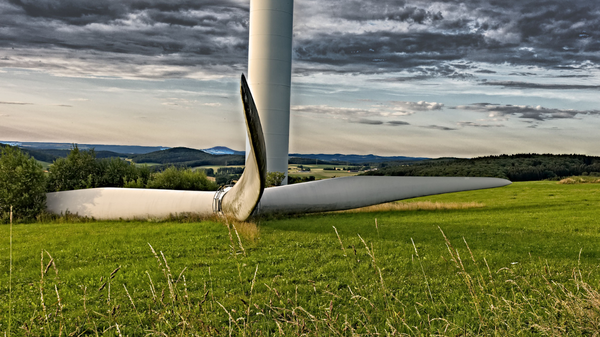
High winds are shredding Scotland’s wind turbines over time, resulting in small particles and larger chunks of plastic (or, more accurately, composite) waste littering the countryside and possibly fouling the waters with various chemicals.
The Scottish Daily Express reports on “concerns for years about the environmental impact from the erosion of microplastics from the colossal turbine blades, which are made with fibreglass and epoxy resin.” Despite these longstanding worries, the government admitted it had no idea how many of Scotland’s 19,000 wind turbines were shredding or eroding, or what chemicals and how much of them they might be releasing, when a member of the Scottish Parliament (MSP) asked the National Government for an accounting.
According to environmental groups raising concerns about the issue, a single turbine can emit up to 62 kilos of microplastics annually.
Energy minister Michael Matheson of the Scottish National Party, the party with the largest representation in the Scottish Parliament, reportedly told the Parliament the government “is not responsible for taking action in this area,” “does not provide funding for continued maintenance of wind turbines,” and “has not issued any fines relating to the failure to maintain wind turbines.”
In response to the national government’s hands-off, eyes-closed approach to the pollution produced as turbines erode or shred, Donald Cameron, MSP from the Scottish Conservative and Unionist Party representing the Highlands and Islands constituencies, told the Scottish Daily Express, “The dangers of microplastics and toxic substances from wind turbine erosion are well-documented, so it’s surprising that the SNP Government isn’t even bothering to monitor this.”
“Despite their enthusiasm for windfarms, it appears that the SNP have washed their hands of any potentially harmful effects wind turbine erosion might have on the environment,” said Cameron.
“[T]he SNP must at the very least monitor the state of Scotland’s turbines and sanction any companies that don’t comply with safe upkeep.
“Otherwise we could end up facing an environmental hazard as a result of the very same turbines that are supposed to be helping us tackle climate change,” Cameron said.
Sources: Climate-Science Press; Scottish Daily Express
Antarctica Is Not Playing by the Climate Alarm Rule Book
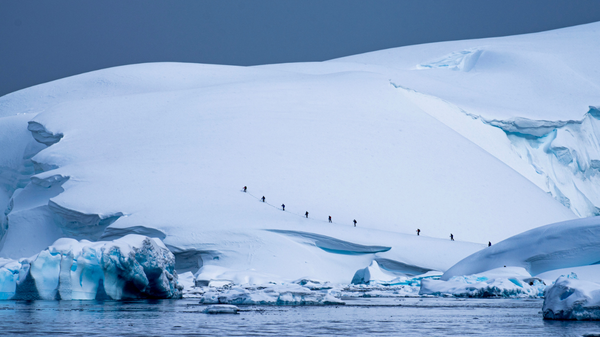
Frontline News is reporting various scientists are puzzled as to why Antarctica is not warming as much as climate models have predicted. The same scientists are also struggling to understand why Antarctica is not losing ice.
“Antarctica has shown Net Zero warming for the last seven decades and almost certainly much longer,” writes Chris Morrison for Frontline News. “The lack of warming over a significant portion of the Earth undermines the unproven hypothesis that the carbon dioxide humans add to the atmosphere is the main determinant of global climate.”
Morrison notes Antarctica had in 2021 its coldest six-month winter since records began in 1957. A 2020 paper published in the peer-reviewed journal Climate and Atmospheric Science (CAS) confirmed Antarctica had not warmed in the last seven decades, despite an increase in atmospheric greenhouse gases.
Over the last seven decades, the Antarctic sea ice area has “modestly expanded” and warming has been “nearly non-existent” over much of the ice sheet, the authors of the CAS paper note.
The data show most of Antarctica is in a prolonged cooling spell, with just west Antarctica and the Antarctic peninsula as exceptions (see figure below).
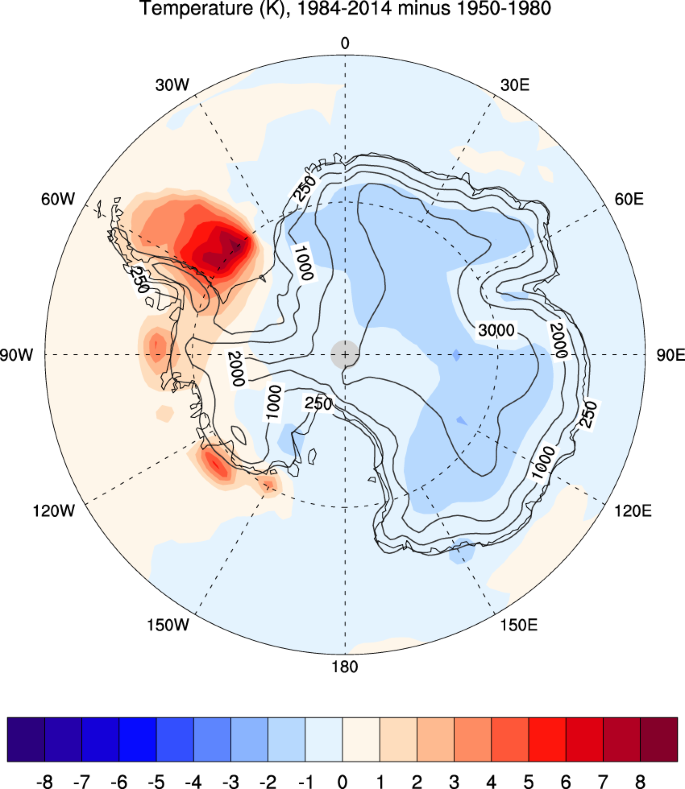
NASA estimates Antarctica is losing approximately 147 gigatons of ice per year. With the continent’s ice mass topping 26,500,000 gigatons, only about of 0.0005 percent of the ice is being lost annually. At current rates, it would take about 200,000 years for it to disappear, which, as Morrison notes, may never occur: “the Earth may well have gone through another ice age, or two, before then.”
Why is Antarctica not behaving as climate models and pop scientists and alarmists in the popular media say it should? A post by Linnea Lueken at Climate Realism notes,
Some researchers have suggested that the sheer depth and thickness of the ice across Antarctica dampens the continent’s sensitivity to atmospheric CO2 additions and the general warming trend. An explanation for the anomalous heating of the West Antarctic ice sheet and peninsula is discussed in the Climate Realism post, “Antarctic ‘Doomsday Glacier’ Is Really Doomsday for Climate Alarmism.” The rise in temperatures there may be due an increase in volcanic activity beneath the western ice sheet warming local waters.
Also discussed at Climate Realism, here, multiple studies show much of the continent has been cooling over the last few decades, with the exception of three temperature stations on the Antarctic Peninsula.
“Attempting to connect every natural variation in weather and long-term climate to just one trace gas produced by humans leads to some unconvincing explanations, not least when climate models are involved,” writes Morrison.
Source: Frontline News; Climate Realism
Heartland’s Must-read Climate Sites
Resignation Due to Academia’s Climate Corruption
Wind is among the most popular renewable energy sources, but the truth is, wind power really blows. From collapsing or burning turbines, to snapped lines, to plastics pollution and the need to burn fossil fuels to keep turbines running, Wind Power is failing on every front except government funded subsidies.
It was recently discovered that in Scotland, several windfarms were connected to diesel generators to keep turbine blades spinning during cold weather to prevent bearings from freezing up. The irony is thick, and there are even more examples that we will cover.
On this week’s episode of Climate change Roundtable – broadcasting LIVE at noon CT on Friday, Feb. 10 – Host Anthony Watts is joined by H. Sterling Burnett and Linnea Lueken to dive into the folly of wind energy.
Tune in to Climate Change Roundtable live every Friday at 1PM EST 12pm CST.
Climate Incorporated – Billions and Billions
One of the most common accusations against climate change skeptics is that they are in the pocket of big oil and other corporations. These claims are often made without evidence and are used as a smear tactic to imply that climate skeptics receive dirty money.
In reality, climate skeptics receive a negligible amount of funding compared to the vast amount of money invested in climate research and political causes. The argument is pointed at the wrong side.
In a recent article titled “Politics, cash, fame: what motivates climate change deniers,” author Roland Lloyd Parry parrots the claim that climate skeptics are purely motivated by greed.
In episode 50 of Climate Change Roundtable, Anthony Watts, Sterling Burnett, and Linnea Lueken will explore the issues surrounding climate funding and why there is a disparity between reality and perception in the climate funding world.



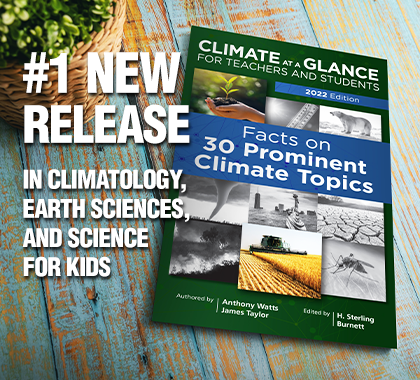


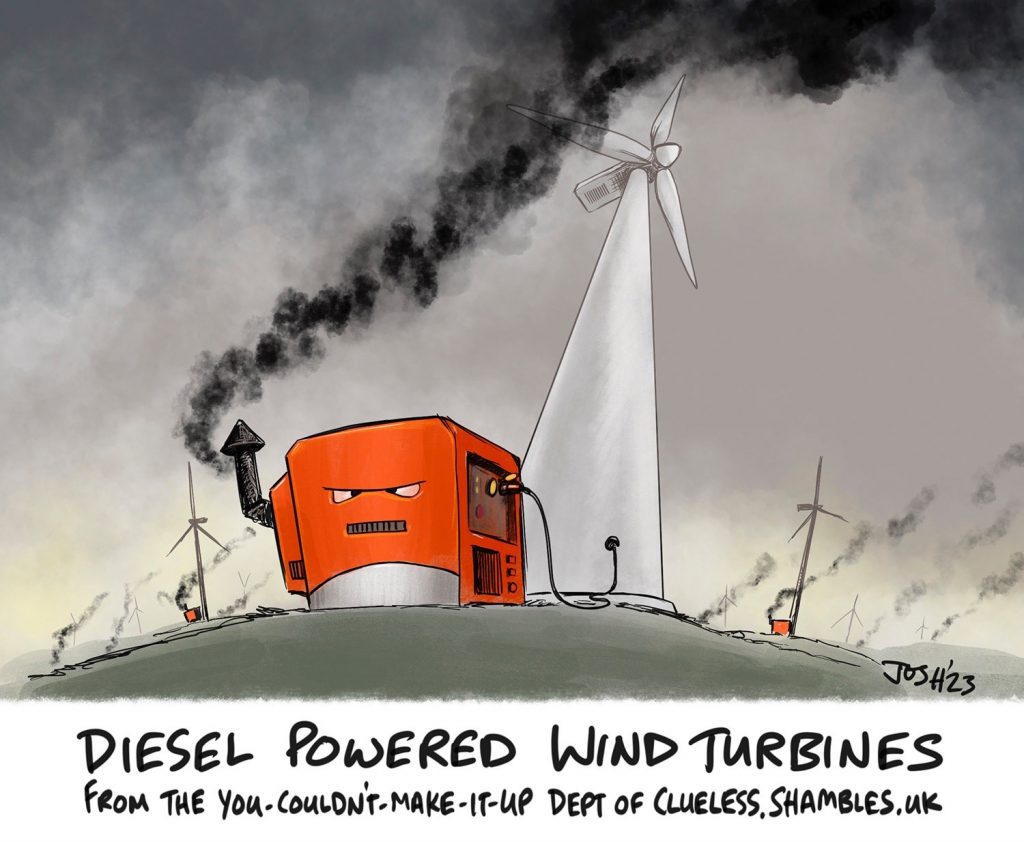 via Cartoons by Josh
via Cartoons by Josh























[…] From Heartland Daily News […]
[…] From Heartland Daily News […]
[…] From Heartland Daily News […]
[…] From Heartland Each day Information […]
[…] From Heartland Daily News […]
[…] Link: https://heartlanddailynews.com/2023/02/climate-change-weekly-461-answering-the-climate-inquisition/ […]
[…] Link: https://heartlanddailynews.com/2023/02/climate-change-weekly-461-answering-the-climate-inquisition/ […]
[…] die grüne Energietechnologien für die menschliche Gesundheit und das Leben darstellen. In der CCW von letzter Woche [in deutscher Übersetzung hier] habe ich ein potenzielles Problem erörtert, […]
[…] die grüne Energietechnologien für die menschliche Gesundheit und das Leben darstellen. In der CCW von letzter Woche [in deutscher Übersetzung hier] habe ich ein potenzielles Problem erörtert, […]